No, the Party can’t “Do Something” about Trump
The nature of US parties means that Trump more or less is the GOP at the moment, and hence the GOP will do nothing about Trump.
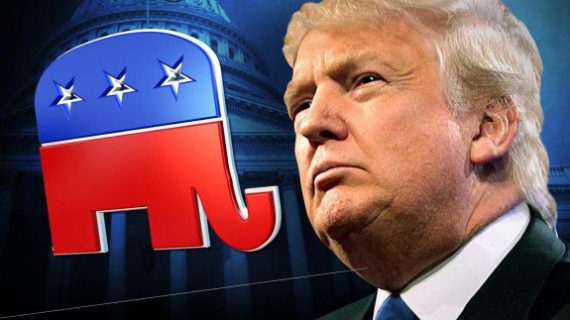 As Doug Mataconis noted in a post earlier today, there is talk about the RNC somehow removing Trump or, else, at least that party leaders would stage some sort of “intervention” to straighten out the campaign. But here’s the thing, people who are talking like this (just like those who thought that “the party” could somehow stop Trump from getting nominated going into the convention) are missing a fundamental fact: Trump is now the leader of the Republican Party for all practical purposes. Reince Priebus works for him, not the other way around (he does not literally pay his salary, but Trump can fire Priebus, while Priebus can in no way fire Trump–see, Wasserman-Schultz, Debbie if you need to bone up on the relative significant of party chairs versus candidates).
As Doug Mataconis noted in a post earlier today, there is talk about the RNC somehow removing Trump or, else, at least that party leaders would stage some sort of “intervention” to straighten out the campaign. But here’s the thing, people who are talking like this (just like those who thought that “the party” could somehow stop Trump from getting nominated going into the convention) are missing a fundamental fact: Trump is now the leader of the Republican Party for all practical purposes. Reince Priebus works for him, not the other way around (he does not literally pay his salary, but Trump can fire Priebus, while Priebus can in no way fire Trump–see, Wasserman-Schultz, Debbie if you need to bone up on the relative significant of party chairs versus candidates).
The structure of US parties is such that since the highest electoral prize is the presidency, parties are heavily shaped the pursuit of that office and by their nominees. This is what David Samuels and Matthew Shugart call the “presidentialization” of political parties. This is a function of separation of powers wherein the chief executive is elected separately from the legislature and where the survival in office of the two branches is likewise decoupled. That is: early elections are not possible and members of the legislature do not directly rely on the executive candidate for election and vice versa. This is to be contrasted with parliamentary systems wherein for a party’s to win the executive it must first win a majority of seats in the legislature (or be part of a coalition of parties that controls a majority of seats).* In these cases, the executive is an agent of the legislative party and serves at the pleasure of that party and can be removed if it no longer serves the interest of the party (or, they might resign as we saw with Prime Minister Cameron recently). One thing is for sure in parliamentary systems: parties are designed to win legislative elections only, which changes the way those parties behave (as well as, typically, how they control their labels, nominate candidates, etc.).
In presidential systems, however, the executive is not beholden to the legislative party in the same way. Indeed, unlike in parliamentary systems, a party can be in the clear minority in the legislature, but still hold the executive (e.g., the House is controlled by Republicans, but the White House is controlled by the Democrats). Indeed, the focus of parties in such systems is fundamentally focused on winning the executive branch.
Samuels and Shugart (in a 2006 conference paper)** describes how the executive candidates can deviate from what others in the party might want to do (it should sound rather familiar–bolded text mine):
Adverse selection problems result from the likelihood that agents possess hidden information. Individuals who seek leadership positions have incentives to overstate their experience and qualifications or misrepresent their true preferences, particularly if those preferences clash to some extent with the organization’s goals. By engaging in misrepresentation, upon appointment or election to the leadership post, agents can make Madison’s worst nightmare come true and pursue their own goals or their own vision of what the party’s “true” goals ought to be.
A party seeking to place its candidate in the chief executive’s office must select a leader who will be competitive in a national election contest. Yet the pool of candidates who can appeal to voters directly and the pool of candidates who can implement the collective “will” of the party organization may only weakly overlap. Thus parties may have to settle for suboptimal agents at the candidate-selection stage: the best potential agents from the party’s point of view may be incapable of winning a presidential election, while candidates who can win such an election may not share the party’s goals fully.
The problem of moral hazard arises from the possibility of hidden action. After the principal signs a “contract” with an agent, the principal cannot observe every action the agent takes, much less have perfect confidence that all those actions conform precisely to the terms of the contract. For a political party, the danger is that leaders might use their authority to advance their own personal goals rather work toward the principal’s collective goals.(19-20).
Now, Trump is an extreme example of this, but the broader point is still well illustrated: the ability of party elites to control the executive nominee is limited at best and may not always fully overlap with all the members of the party. The institutional party is therefore weaker in such a context than in a parliamentary system. It is why, for example, Paul Ryan is not the leader of the GOP at the moment even though he is the highest elected office-holder in the party. Ryan could more or less be viewed as leader of the party prior to the selection of a candidate, but ever since Donald Trump became the presumptive nominee, that role pretty much went away and will only return if the Republicans win the House but lose the White House in November. And one thing is for certain: the GOP as an institution worries far more about who its presidential candidate will be than it does about who the Speaker of the House will be.
The thing to remember is that the party orients itself, and its internal structure (such as primary and convention rules), to the selection and maintenance of the presidential candidate and once that person is chosen, the party is largely subservient to him (or her). The thing is, candidates (even bad ones) are not normally like Trump. The GOP is currently being hoisted on its presidentialized petard and so talk of the party leadership “doing something” assumes potential actions that are not designed into the system. The bottom line being that a presidential candidate (or elected president) can do severe damage to the party without the party, as an institution, being able to do all that much about it. The US system is especially susceptible since the primary process selects the candidate with very little influence by party elites (note that the reason the Democrats have superdelegates is an attempt to ameliorate this potentiality to some degree). In short one could say that “The Party” either is not in control or is, for all practical purposes, a create of Trump (and not the other way around).
Now, on the one hand, Trump may not fully represent all Republicans (as evidenced by those who have declared they will not vote for him) but he is the leader of the party at the moment and the notion that there is some entity called “The Republican Party” that is separable from Trump and can act against him is incorrect and represents a misunderstanding of how US parties function.
None of this is to absolve the Republican Party for Trump (the ways in which the party leaders help bring us Trump is a wholly different discussion). All I am addressing here is trying to demonstrate how the nature of our political institutions influence party behavior and development and how it limits what can be done by the party in regards to Trump.
Granted: the truly remarkable could happen in terms of some sort of internal party revolt against Trump, but this seems radically unlikely. A more likely move would be for an attempted mass defection of establishment Republican types to support Gary Johnson, but this is rather unlikely as well. More likely than not we will only see individual defections rather than something more dramatic.
*Minority government is also possible, but that does not undercut the basic point: even in those cases, legislative electoral victories are needed to win the executive.
**I’d quote the linked book, but it is at the office.

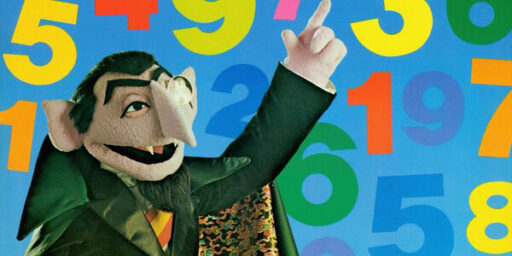
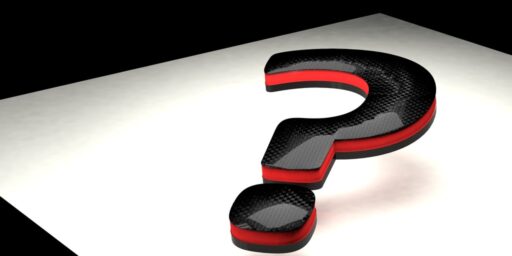

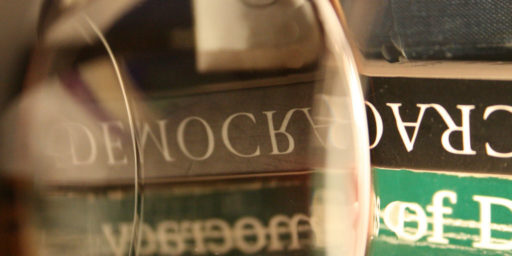
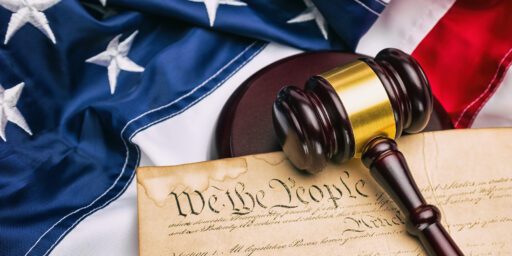
Very good! How did the great Molly Ivins put it…”you got to dance with them what brung you”…hey Republicans, enjoy…
And that’s why the US has gravitated toward a two-party system and why it will remain one. If your eyes are on the prize of the presidency, then you will be motivated to form your coalitions prior to the election in order to increase the odds of winning the presidency, which entails the formation of an intra-party coalition. Third parties in the US serve as spoilers during the election but have no bargaining power after the election; anyone interested in having a real influence on governance needs to belong to a major party before the fact.
The GOP establishment had better hope that Clinton wins so that the Trump wing fizzles out. But that won’t matter much in the big picture — with a defeat in November, the battle will revert back to the Tea Party-establishment tug of war that John Boehner came to know and loathe, and there will be no grand epiphany or post-election reorganization. Same as it ever was, same as it ever was.
@Pch101:
It is a reinforcing factor, but the main reason that we have a two party system is the way we elect the legislature.
Note that almost all other presidential systems have multi-party systems (see Latin America or even France for that matter).
OFF TOPIC- Whatever happed to Rodney Dill’s Caption Contest? Seems like it’s been a while since I’ve seen one.
maybe he realized it was boring and he should stop?
@Steven L. Taylor: An article the other day in the Washington Post does a good job of explaining why the US is a two-party system.
My only quarrel is that the writer scoffs at the notion that it’s an accident of history. In fact, it was. The Founders didn’t set up the system with any recognition that there would be political parties at all. There weren’t any other democracies in the world with which to compare, so they just assumed theirs would be party-less. The 12th Amendment, ratified little over a decade after the signing of the Constitution, was in many ways an adjustment to the new reality of parties. In the original electoral system, the runner-up in a presidential election became the vice president. It was as if, in 2008, Barack Obama were to become president and John McCain vp. (That’s more or less what happened in the 1796 election, when Federalist John Adams became president and anti-Federalist Thomas Jefferson his vp.) That just goes to show the Founders’ cluelessness about parties when they wrote the Constitution.
I’d also add that this year is less ripe for third parties than most commentators think. The conventional line I keep hearing is, “The two major-party nominees are unusually unpopular; therefore, third-party candidates have an unusual opportunity.” Just one look at the polls should disabuse anyone of that notion. Gary Johnson isn’t doing badly–in fact he’s doing better than any other LP nominee ever did–but Ross Perot, John Anderson, and George Wallace were substantially higher in the polls at comparable points in the race. (Third party candidates historically have always done much worse on Election Day than they were polling earlier in the race. Maybe this year will be different–it’s been wacky enough as it is–but so far there’s been no sign of that happening, and it isn’t helped by the fact that a lot of anti-Trump Republicans consist of neocons and social conservatives for whom Gary Johnson holds limited appeal.) The fact is that however dissatisfied voters may be with Trump and Clinton, the vast majority are still supporting one of the two. Trump is almost like some kind of poli-sci experiment to test the hyper-polarization of our era.
@Kylopod:
And to test the hypothesis that candidates matter less than people often assume in determining the basic pattern of voting.
@Kylopod: And yes: the Founders were utterly clueless about parties (and is good evidence to demonstrate that pretending like they were all seeing in regards to how the constitutional system they created would function is simply incorrect).
@Steven L. Taylor:
An additional reason could be the point that you elect your president by plurality (more exactly, by plurality in each state), while all or almost all other presidential countries require absolute majority (with a 2nd round or a parliamentary vote if no candidate has the majority at the 1st round), meaning that you not “spoil” your vote voting for a smaller candidate (if none of the major candidates has the majority, you can always vote in the lesser evil in the 2nd round; and if one of the major candidates has the majority at the 1st round, these mean that he will be the winner even if you had voted in the other major candidate).
@Miguel Madeira: The plurality electoral system and, more specifically, the EC are also contributing factors.
But we don’t have to look far (Mexico) to find a case of plurality election of the president that also has a multi-party system.
@Steven L. Taylor:
I suspect that, if anything, the EC reduces bipartidism (at least compared with a system of national popular vote by plurality): with EC, in the “safe states” you can vote Green or Libertarian without spoiling the vote; and (specially if the big party you are closer has a majority in the house) you can even vote for a regional third party with real hope of winning some electoral votes (like several incarnations of Dixiecrats in 1948, 1960 and 1968).
@Miguel Madeira: I understand your argument, but the reality is that the plurality winner-take-all aspect of the EC at the district level (i.e., the states) really reinforces bipartism.
(Note that we do not see serious third party success even in non-competitive states).
@Miguel Madeira: You do touch on an interesting subject: why do we not see more regionalized parties in the US?
@Steven L. Taylor:
Because of presidentialism+FPTP; in a parliamentary+FPTP system (like UK or Canada) a small party could be competitive in some districts; in a presidentia+-FPTP system, a regional party can only have influence at the executive level if it becomes an associate of a big party (because a presidential candidate of a regional party can’t win the election, and not even force a 2nd round); contrast the evolution of the prairie left-wing populist parties: the Cooperative Comonwealth Federation in Canada (the present NDP) with the Farmer-Labout Party of Minnesota and the Non Partisan League of Dakota (who becomes the local affiliates of the Democratic Party)
@Miguel Madeira: I think for us it is presidentialism+FPTP+primaries are nominating mechanisms.
Parties don’t control their labels in the US in a way that is basically unique. Why go third party when you can just win the nomination of a mainline party? (e.g., the Tea Party has no reason to form an actual party since they can get nominated as Republicans).